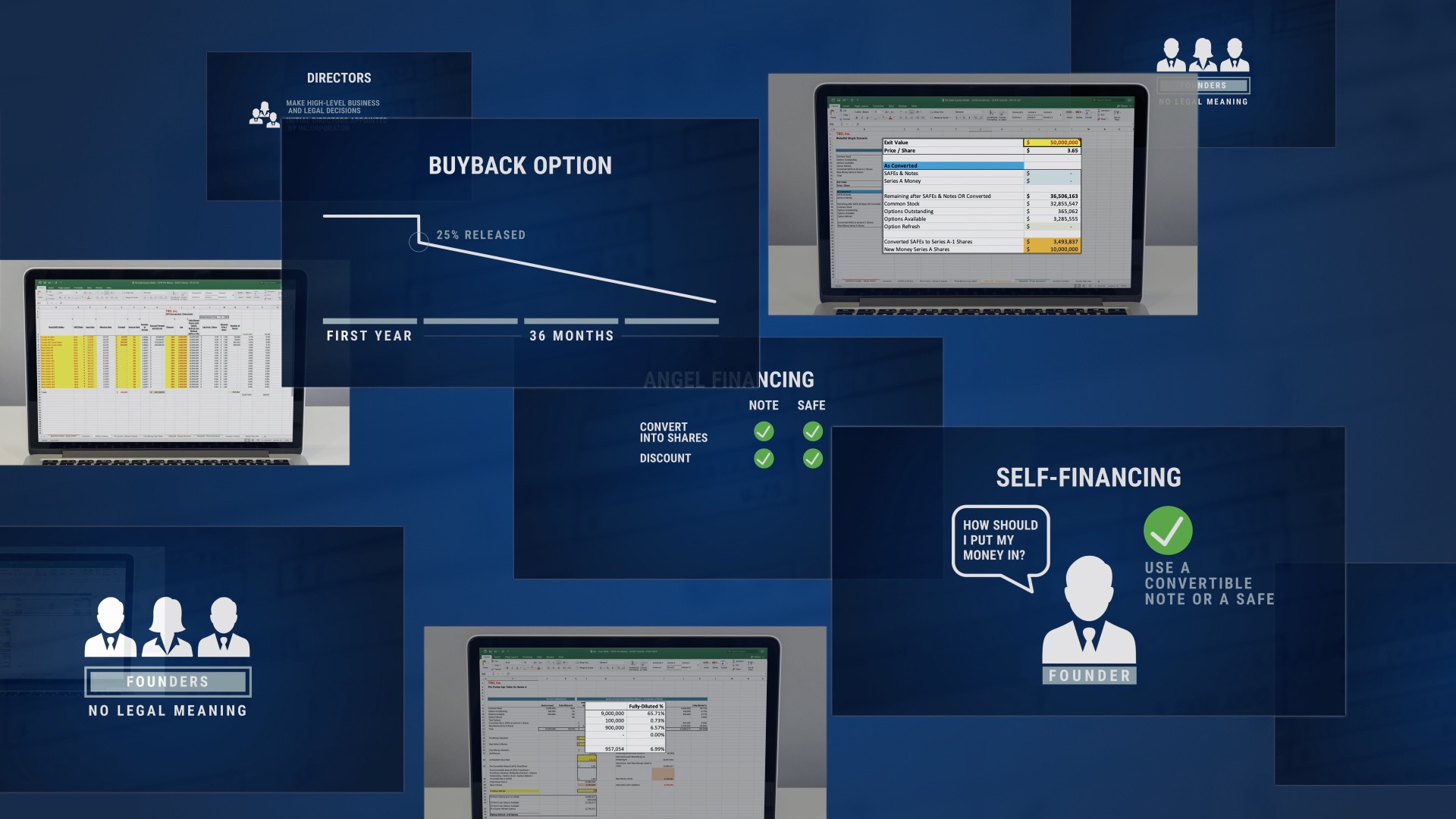You may remember being on the receiving end of an equity grant at some point in your career and thinking about whether it was fair compensation for your services. You may even have questioned some of the details, such as the amount, vesting, or other terms of the grant when you received it, declaring it to be disproportionate to the value you brought to the company. Whatever your experience has been with equity grants, it can be an important currency in the growth of your startup that you must manage wisely as the founder(s). You will want to consider these very same questions that your own employees, advisors, and contractors may be thinking. Most importantly, you need to decide how much of your company you are willing to give to incentivize them.
After the engines of your startup start moving and your needs grow beyond the capabilities or capacities of your founding team, you will need to decide whether to hire employees, advisors, or contractors. This is an exciting time for your company, but you will need to consider how to meet your hiring needs and what you can offer to compensate the right people for your team. Equity, often in the form of stock options, is a powerful tool and a valuable asset for early stage growth companies to incentivize individuals and attract talent to the world of startups where budgets are tight and, inevitably, salaries are lower. Equity compensation will play a key part in making sure you not only find the right person for the job, but that they will be incentivized to stay for the ride.
Stock Incentive Plan
First, you will want to adopt a stock incentive plan from which to give equity in your company. A stock incentive plan is important early on because it allows you to set aside a portion of your company to attract talent without having to pay significant amounts of money. Instead, you will be able to compensate and incentivize them with equity. The employees will be motivated by the hope that they will reap the rewards of owning equity in a company that has a successful future. A stock incentive plan sets the playing field for how much equity you can give to employees, advisors, and contractors. Without one, your company will have a harder time attracting the talent necessary to grow into a successful start up because it likely does not have the revenue to pay the talent the same salaries a more established company can.
Generally, you should set aside 10-20% of the total capitalization of your company to a stock incentive plan because you will want sufficient currency to scale and build out your company as it grows. The specific percentage allocated to the stock incentive plan depends on how much capital and cash you have on hand to otherwise compensate service providers that will play a key part in your company, as well as how many people you need to hire and how significant their contributions are to your company. Having a sufficient amount of shares available will allow you the freedom to incentivize as you see fit between the employees, contractors, and advisors required to take your company to the next level.
For more information about stock incentive plans, check out our earlier blog post, “Stock Incentive Plan: A guide for first-time startups.”
Note: Although we talk in terms of ownership percentages below, it is important that you only commit to a number of shares with the folks you hire because everyone’s ownership percentage shrinks as the company grows and you do not want to accidentally give your employees, contractors, or advisors anti-dilution protections because that would create extra dilution for everyone else (including you)! That said, you should be fine in saying that a number of shares corresponds to “approximately” an ownership percentage, or corresponds to the ownership percentage at a certain point in time (i.e., when the documents are signed).
Advisors (0.1% to 0.25% of your Company)
Advisors are important to the growth of any startup because there comes a time when you will need an expert perspective outside of the founding team to, for instance, capitalize on trends or best practices, and to provide a third-party view into the operations of the company. In fact, it may very well be the difference that will guide your startup ahead of the pack. These individuals will be well connected, have significant experience, or have specialized knowledge in your industry, and ultimately can fill in a gap on your team and tackle identified challenges or roadblocks your company is facing. They may also have other commitments such that they will not agree to be your employee or contractor.
Although fulfilling a different role than contractors or employees, you should still choose and screen your advisors carefully and enter into written agreements memorializing the services, commitment, and compensation they are to receive. This will ensure the most value-add for the equity that they will be receiving and make sure the company is protected. For example, you’ll want to make sure that they keep your confidential information secret and that they commit to certain duties as an advisor.
In deciding how much to compensate your advisors, you should be careful about giving away too much equity because you may receive much more meaningful returns from equity given to full-time employees.
A good benchmark to consider is that your advisors should be receiving between 0.1% to 0.25% of the company because more often than not, advisors will only devote a small portion of their time to your company and may have conflicting commitments. Make sure if you are considering granting an advisor more than 0.25% that the advisor will be able to provide tangible value, such as immediate solutions to an identified challenge that the company is facing. For example, guidance through regulatory compliance.
Advisors typically have shorter vesting periods than employees: somewhere around two years, instead of four. If there is a cliff, it is typically at 6 months and the advisor may receive single trigger acceleration upon a change of control, particularly if they are being hired specifically to help the company achieve the change of control.
Contractors / Employees
Employees and contractors are most important for your startup and will take up most of your stock incentive plan. It is important to distinguish between the two when hiring to ensure compliance with employment laws. Generally speaking, someone is an employee of a business when the business can direct and control the work that is being done by the employer. The business does not control or manage the work of an independent contractor, only accepting or rejecting their deliverables. For more information on the difference between independent contractors and employees, check out “What’s the Difference Between an Independent Contractor vs. an Employee?” on Gusto.
How much equity you should grant to an employee or contractor largely depends on what your business is and how important the employee or contractor’s role is in that business. The more important the role, the better argument that the employee or contractor has for a larger equity portion. For example, the deliverables that the contractor will be providing will dictate how much equity the contractor should receive. If the contractor is providing a functional prototype of a product or software, there is a strong argument for an equity award up to 5%. On the other hand, if the contractor is only providing marketing and sales services, they should only receive between 0.1% to 1% but no more than 1%. In the middle, outside CFO services may warrant anywhere between 0.5% to 2%.
It’s a good idea for you to grant more equity to employees than contractors in a similar role to incentivize them to stay with you for a longer term. This means that the standard vesting schedule for employees will be four years with a one year cliff. You should never give an employee any type of acceleration on their equity grant because you want to make sure the employee earns his or her equity with commitment to the growth of the company over the course of the vesting schedule. You do not want an employee to reap the rewards of your hard work if they have not put in much time with the company. You will also want the flexibility to repurchase any stock that has not been earned by the employee when they leave the company so that you can use the repurchased stock to compensate and incentivize their replacement.
On the other hand, vesting for a contractor will be more variable and again will depend on the services and deliverables. If you are interested in recruiting the contractor as an employee and might consider bringing them on board for the long term, you should use the standard vesting schedule of four years with a one year cliff. If the contractor is project based, vesting may be over the term of the contract with certain acceleration provisions for the delivery of the deliverables.







